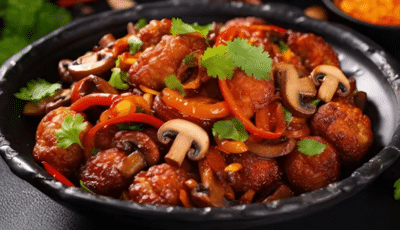
CLAIM:
Watermelon seeds are a “superfood” packed with nutrients like magnesium, iron, and zinc, which can boost immunity, aid digestion, improve sleep, and promote clear skin.
FACT:
Watermelon seeds moderately provide nutrients like magnesium, iron, and zinc, along with healthy fats and protein. However, experts caution that consuming them in excessive amounts, especially raw, may upset stomach and cause digestive discomfort. They recommend eating them in moderation, preferably roasted or sprouted, as part of a balanced diet.
You’re relishing a slice of watermelon on a sunny afternoon, casually spitting out the seeds or throwing them away — something most of us do without a second thought. But what if those tiny black seeds you discard are actually packed with nutrients? The internet seems to think so. A viral Instagram reel by fitness coach and influencer Priyank Mehtawho has 9.87 lakh followers, has reignited the debate around whether watermelon seeds are truly a “superfood.”
In the reel, styled as a conversation with a woman, Mehta warns viewers that those who throw away watermelon seeds are missing out on a powerful source of nutrition. He explains that most people don’t realise how nutrient-dense these tiny seeds are, calling them “a treasure trove of health.” According to him, watermelon seeds contain magnesium, iron, and healthy fats that help boost immunity, aid digestion, and even improve sleep quality.
He further claims that watermelon seeds have more magnesium than almonds, more iron than spinach, and more zinc than pumpkin seeds, suggesting that they are far more beneficial than people assume. “What does magnesium do? It helps you sleep better,” he says. “Iron keeps you from feeling tired all day, and zinc gives you clear skin.”
Mehta advises viewers not to discard the seeds while eating watermelon. Instead, he suggests roasting the seeds and consuming them as a healthy snack, saying that it’s an easy way to add nutrients to one’s diet.
The reel, which has received over 7.19 lakh views, 20.5K likes, and more than 30K shares, has sparked a new debate on whether watermelon seeds truly qualify as a “superfood.”
Are watermelon seeds really a hidden superfood?
While social media claims may make watermelon seeds sound like a miracle food, scientific evidence paints a more balanced picture.
According to data from the U.S. Department of Agriculture (USDA) and the Food and Drug Administration (FDA), one ounce, about 28 grams, of watermelon seed kernels contains roughly 158 calorieswhich is nearly the same as a serving of potato chips. However, a more realistic handful of seeds, around 4 grams, provides about 23 calories and a modest dose of nutrients.
A handful of watermelon seeds contains 21 mg of magnesium, which is around 5 per cent of the daily recommended intake. Magnesium plays a key role in maintaining nerve and muscle function, heart health, and immune response. They also provide 0.29 mg of iron, around 1.6 per cent of the daily value, which supports oxygen transport and energy metabolism. However, phytates present in the seeds can inhibit iron absorption, reducing their nutritional impact.
Watermelon seeds also supply healthy fats, both monounsaturated (0.3 g) and polyunsaturated (1.1 g) fats, in a handful. According to the American Heart Association (AHA), these fats are known to reduce “bad” cholesterol and protect against heart disease and stroke. The seeds also offer zinc, an essential mineral for immune function, cell growth, and sensory health, with one ounce providing about 26 per cent of the daily value. Yet again, phytates limit the bioavailability of zinc, making the actual absorption lower.
A 2023 review reported that watermelon roots can be strongly purgative and are sometimes used as an emetic at high doses. The review also noted that “the seeds may also have an antihypertensive property and be useful for reducing blood pressure. In addition, watermelon seeds have anti-helminthic properties and are occasionally prescribed for the treatment of helminthic infections.
A helminthic infection is an infection caused by parasitic worms, also known as helminths, such as roundworms, tapeworms, and flukes. These infections can affect various parts of the body, often the gastrointestinal tract, leading to symptoms like abdominal pain, diarrhea, fatigue, and weight loss.
Experimentally, tapeworms and roundworms were observed to be inhibited by a fatty oil contained watermelon seeds, as well as aqueous or alcohol extracts. The seeds have also been used to extract tar, which is used to cure scabies and to tan the skin.
Another recent 2025 review emphasised that “watermelon seeds, often regarded as agricultural waste, hold immense potential as a source of essential nutrients and bioactive compounds.” The paper noted that seeds demonstrate antioxidant, antimicrobial, hypoglycemic, and anti-inflammatory properties, making them valuable in nutraceutical and cosmeceutical industries. However, the authors cautioned that “the limitations, including variation in the composition of seeds, technology for extraction, and safety of bioactive extracts, remain problematic in order to popularize bioactive compounds.”
In line with these findings, Dr Aarti Ullalphysician and diabetologist at Gleneagles Hospital, Mumbai, with over 21 years of experience, explained that watermelon seeds are nutritious when eaten in moderation. “They contain magnesium, iron, zinc, and healthy fats that help improve heart health, boost immunity, and support better sleep. Being rich in protein and fibre, they also aid digestion and keep energy levels stable,” she said.
On claims that watermelon seeds have more magnesium than almonds, more iron than spinach, and more zinc than pumpkin seeds, Dr Ullal clarified, there is no evidence available to prove this claim. “However, it’s best to eat them roasted or sprouted for easier digestion and maximum benefits. So, it is better to speak to the expert and eat the recommended quantity.”
Regarding consumption, Dr Ullal advised that “roasted watermelon seeds make a tasty and nutritious snack. They’re a simple way to add protein, minerals, and healthy fats to your diet, and are safest when roasted or sprouted, making them easier to digest.”
However, she cautioned that eating them in excessive amounts raw may cause stomach upset and even digestive discomfort. “So, be attentive when it comes to your well-being and don’t go overboard on anything. Anything in excess is harmful to health,” she said.
This story is done in collaboration with First Checkwhich is the health journalism vertical of DataLEADS.
-
Hyderabad and Lucknow now share a place on UNESCO’s food map

-
RBI may announce 25-50 bps rate cut amid softening inflation: Report

-
Without decarbonisation, Delhi could touch 50°C, warns former minister Jayant Sinha

-
Company behind Huggies diapers buys Tylenol maker for $40B

-
Mushroom Manchurian: This dish lives up to expectations in terms of taste and is also healthy...
